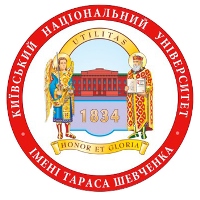Publication Ethics
The editorial board of Folia Philologica maintains a certain level of requirements to selection and acceptance of articles submitted to the editorial staff. These rules are determined by the research area of the journal and standards of quality of scholarly papers and their presentation accepted in academic community.
The editorial board calls for adherence to the principles of the Code of Ethics for Scientific Publications developed by the Committee on Publication Ethics (COPE).
Ethical Obligations of Journal Editors
The editor should review all manuscripts submitted for publication without prejudice evaluating each manuscript in a due manner regardless of authors' race, religion, nationality, as well as status or affiliation.
Should a submitted paper contain plagiarism it shall not be accepted for publication.
All materials submitted for publication are carefully selected and reviewed. The Editorial Board reserves the right to reject a paper publication or return it for further revision. The author should revise the article proceeding from the comments of the reviewers or Editorial Board.
The decision of the editor to accept the article for publication is based on such characteristics of the article as importance of research findings, originality, quality of presentation, and relevance to the journal profile. Manuscripts may be rejected without review should the editor believe that they do not suit the journal's profile. In making such decisions, the editor may consult with the Editorial Board members or reviewers.
Ethical Obligations of Authors
Authors should ensure that they have written completely original articles and that if the authors have used the work or words of others, this should be appropriately cited or quoted.
Submitting the same article to more than one journal is considered unethical and unacceptable.
The article should be well-structured, contain sufficient references and adhere to all formal requirements of the journal.
Unfair or deliberately inaccurate statements constitute unethical conduct and are inadmissible.
The author who is in contact with the Editorial Board must ensure that all co-authors have read and approved the final version of the article and have agreed to its publication.
The authors of the articles shall be fully liable for the content of the articles and the very fact of their publication. The Editorial Board shall not in any way be liable to the authors for the possible damage caused by the publication of the article. The Editorial Board is entitled to remove the article should someone's rights or generally accepted norms of scholarly ethics be violated within the publication process. The Editorial Board shall notify the author of the fact of the article removal.
Ethical Obligations of Reviewers
The editorial staff adheres to double-blind peer review to ensure that the manuscripts are evaluated objectively.
Since the review of manuscripts is an essential step in the process of publication and, therefore, in implementation of a scholarly method as such, each scholar should be to this or that extent involved in the review process.
In case the selected reviewer is not sure whether their qualification is relevant to the level of research presented in the manuscript, they must return the manuscript immediately.
The reviewer should objectively evaluate the quality of the manuscript, experimental and theoretical work presented, its interpretation and presentation, as well as the extent to which the paper meets high academic and literary standards. The reviewer should respect the authors' intellectual independence.
Reviewers should adequately explain and substantiate their opinions so that editors and authors could understand what their comments are based on. Any statement that an observation, conclusion, or argument has already been published must be accompanied by a reference.
The reviewer should draw the editor's attention to any significant similarity between this manuscript and any published article or any manuscript submitted to another journal at the same time.
Reviewers should not use or disclose unpublished information, arguments, or interpretations contained in this manuscript unless the author agrees.
- All manuscripts are initially reviewed by editors to evaluate their relevance to the subject matter and requirements of the journal.
- The submitted manuscripts are sent to the reviewer (one of the Editorial Board, an expert in the relevant field). The manuscript is subject to double-blind peer review: neither authors nor reviewers know each other’s identities.
The review procedure focuses on objective evaluation of the scholarly paper’s content determining its adherence to the journal requirements and provides a comprehensive analysis of advantages and disadvantages of the article.
The reviewer concludes on reasonability to publish the article indicating its main shortcomings (if any), as well as the conclusion about possibility of publication: "recommended", "recommended if shortcomings are removed" or "not recommended".
The most common reasons for declining an article are as follows:
– bad or wrong structure of the article;
– lack of scientific novelty;
– lack of up-to-date references to sources;
– the article contains theories, concepts, or conclusions not fully supported by the data, arguments, or information;
– the article is of poor language quality.
- The decision is forwarded to the author (s). Articles to be revised are sent to the author (s) along with a review text that contains specific guidelines for revising the article.
- The revised version of the article is sent for reconsideration. In case of negative evaluation, the article is rejected and is not subject to further review.
The Editorial Board does not enter into discussions with the authors of the rejected articles.








